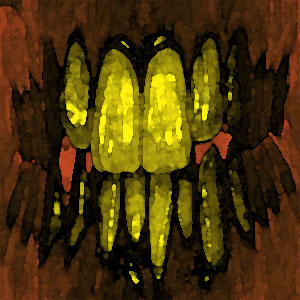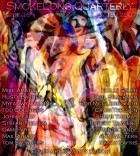Where did this story originate? And where did you get that masterful final line? What was harder—knowing where to begin or where to end?
This story originated (atypical for me) with a prompt. I picked up the first line at the Big Ugly Review for their “and so it begins” contest—”I’m not built for this kind of thing anymore.” I was in a foul mood that day, and my initial plan was to write a mean, bitter, and derisive flash about an old broad and her horny husband. But as soon as I’d written the first two or three sentences, I saw these two in front of me—and I couldn’t help loving them. The image of an old man obsessively taking pictures of his aging model/partner intrigued me. Why are they doing this? How does she feel about it? The last line wasn’t planned, it emerged as a logical consequence from everything that happened so far. It just felt true.
In general, I’m a dreadful “starter” and often have to trash the first couple paragraphs of a story. The ending almost always comes naturally.
The story gains an intensity with a reckless kind of momentum. How did that “pace” and this story find each other? How important is that sense of urgency to this piece—and to flash overall?
I think the pacing is related to the actions in the story. While writing, I felt the pacing speed up from the moment she unhooks her bra and gives him permission to “take everything.” It’s like a dam breaking. At first, his response is tentative, but then he can’t help himself—he takes more and more pictures of her, as if he were gorging on her. Of course, the hovering presence of death also creates a sense of urgency.
I noticed, though, that I find it difficult to define “urgency” properly. Does it refer to a life/ death situation? Lots of drama? Lots of action? It can mean so many things. I do think a flash works best if it captures a moment that is somehow enhanced, significant, intense—a moment in which something changes. An important moment.
A psychologist turned writer. How does the “psychologist” inform/guide/influence the “writer” in your pieces?
Ha! not very much, I’m afraid. My background is in the “scientific” branch of psychology—cognitive science. I did computer simulations of human thought processes. One of my papers was titled “Smart Sampling Without Reinforcement” and examined how closely human information search conforms to Bayesian standards. Clearly material for breathtaking fiction, ha ha. One aspect of psychology that influences my writing is the world of academia in general. I’m fascinated by the world of researchers, the intrigues, the remoteness from real life, the passion for the abstract, the genuine love of knowledge.
Speak, if you would about Steel City Review, your new venture into the world of literary journals.
Ah, the Steel City Review! My friend Julia LaSalle (who’s an amazing writer, by the way!) and I started our own literary magazine. We are currently putting together issue # 2, which will be out April 15. We’re an online quarterly and have grand plans for an annual print anthology (attempts to finance this are currently underway…).
We publish stories focusing on what we perceive as Pittsburgh-esque themes: stories set in Pittsburgh, stories about work, industry, technology—computer science, coding, academia—all of these both from a contemporary and sci-fi perspective (I write sci-fi myself). We publish flash and short stories. The thing is, we both live in Pittsburgh, and we thought that in the anonymity of the internet it would be nice to see a magazine tied to a specific place, with a relatively specific (some would say arcane) thematic focus. So far, we were overwhelmed by the wonderful stories we received. Please consider submitting!
At the recent AWP conference, a number of writers talked about their old flames, books that have influenced them during a formative time in their lives—and ones they return to for lessons in writing and, of course, life. Discuss your old flame, both what it meant to you then and what it means to you now.
I find it difficult to pick out a specific book of the many, many books I love, but the one I would take on that proverbial island with me would be The Magic Mountain by Thomas Mann, which I enjoyed both in German and the (excellent) English translation. I like it how, throughout this entire massive tome, Mann manages to keep up this sense of almost imperceptible irony. I love the humor, the enormous scope, the devastating ending. In terms of my own writing, this book shows me that it is possible to write about “big” topics without being dreary. It gives me courage.


